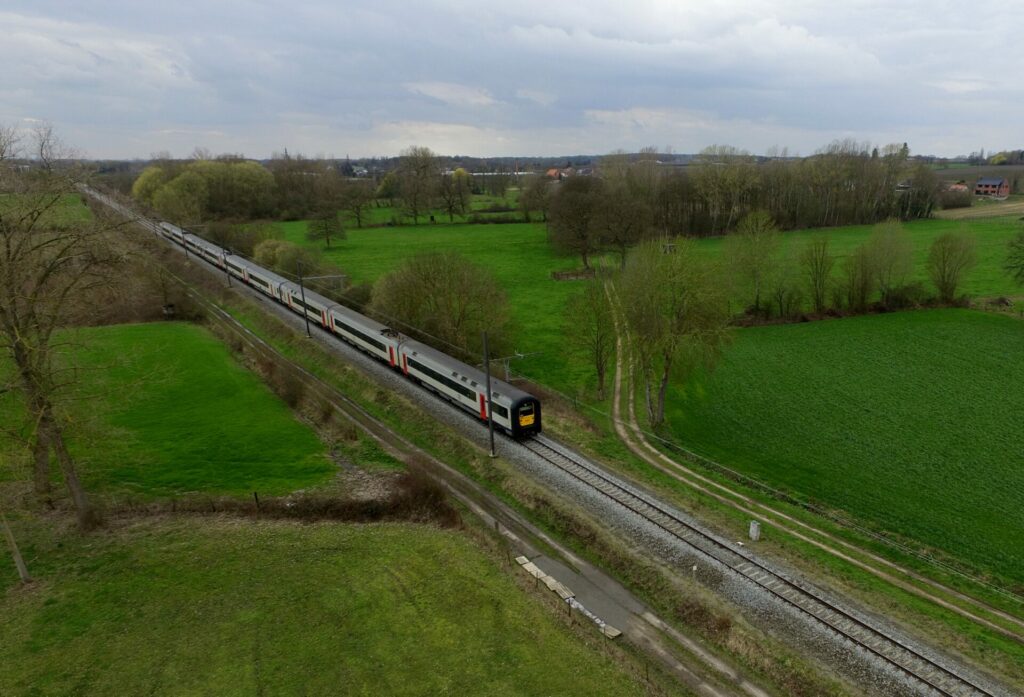Public rail company Infrabel has requested EU funds to shorten the commute time between Brussels and Luxembourg.
At present, 45,000 Belgians commute 200 kilometres between the two cities every day. But 85% of these make the journey by car. Travelling by road takes two hours and 45 minutes compared to three hours and eight minutes on the train. To address this, the governments of Belgium and Luxembourg have now formalised ambitions to modernise the rail route, following a letter of intention signed in November 2023.
In this context, Infrabel has submitted an application for the 'Connecting Europe Facilities' (CEF) initiative, in order to fund an enormous modernisation project already underway on 'Axe 3', the connection between the two cities via lines 161 (Ottignies -Namur) and 162 (Namur-Luxembourg border).
Rail infrastructure in the affected section dates from 1858 and hilly terrain reduces train speed from the usual 160 kilometres per hour to 130 kilometres per hour.
Addressing the Chamber on 17 January, Federal Minister for Transport Georges Gilkinet (Écolo) expressed his commitment to "double the number of commuters between the two countries by 2040" as well as "doubling the volume of rail freight by 2040, and to reducing journey times between the two capitals, with the aim of linking Brussels and Luxembourg in two hours by 2030."
High hopes, deep pockets
Infrabel CEO Benoît Gilson has referred to the works on the Belgium-Luxembourg route as "one of the most complex on the Belgian rail network".
With initial formalities settled, construction will be in full swing between 2024 and 2028. This will consist of track renewal, new signage, 80 separate civil engineering projects, removing 32 level crossings, levelling rocky surfaces, and a "re-electrification" of the entire system.
EU funds will propel the project, as the pending allocation is not Infrabel's only source of funding. The company already receives federal and European subsidies, as well as a €1 billion loan secured at the end of 2023. €149.3 million of this loan is earmarked for the Belgium-Luxembourg works while the rest is designated for other projects such as construction on the Bruges-Ghent line and extensions in the Ports of Brussels, Antwerp and Ghent.

